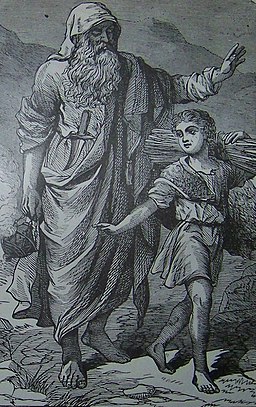
One of the more interesting fights in Christianity is between the concept of salvation through faith and/or works. Many in the protestant denominations, basing their understanding in the teachings of Martin Luther, maintain that we are saved by faith and therefore, since we are saved by faith, we have no need to engage in works.
St. James’ Epistle, which is a letter that Martin Luther disputed, explains that it is through our works that faith becomes evident. We may say we love God, but if we do not act out of that love, then we demonstrate that we do not actually love God. We can argue for the existence of God, for the life, death and resurrection of Jesus, but this proves nothing more belief that even the devil has. In fact, the devil believes in God more than any saint does. But he refuses to love God.
St. James explains that when we live our faith then we demonstrate our love.
This leads me to ask about our weekly Mass attendance. Many Catholics believe but do not attend Mass and believe that they do not have to attend Mass to be saved. Others Christians will condemn Mass attendance as a sign of putting faith in works more than grace. If we return to the Letter of James, which we can consider the ultimate authority on faith and works, we see a powerful admonition that we can use as the foundation of our question about attending Mass. He writes about Abraham and Isaac. Abraham proved his love of God when he began to sacrifice his only son Isaac at God’s request. Many today are scandalized by the passage asking what kind of God does this?
What this passage is actually about is that the surrounding cultures practiced human sacrifice to worship their gods and our God called Abraham to this same standard to prove his love because that is the only way he understood how to prove love to the divine. Once Abraham begins to act obediently, God sends an angel to stop him and, through this, God teaches him that his faith is actually proven not by sacrifice, even of his son, as it is for the pagans, but by obedience to God and by the works of serving God and doing His will.
James explains, therefore, that by Abraham’s works, his faith becomes apparent.
Cannot the opposite be also true? If the Lord calls us to weekly Mass and we choose not to attend, are we not proving our lack of faith through our lack of obedience to God.
One reason for this dichotomy is that many believe that it is through good works that we are saved. James explained that we do not earn Heaven through our good works, but through them prove our relationship with God.
Jesus also says, “if you love me you will keep my commandments”, but that means that proof of our lack of love is in ignoring the commandments including the third. So it is here that faith and works play themselves out again.
The protestants think that we believe that we earn Heaven through our works and rightfully they condemn that attitude. However, James explains that we demonstrate our faith through our works. We are saved by faith and live by it in our works. If we have no works, he explains then our faith is truly dead. Indeed, he compares faith without works to a body with no spirit and such a body is likewise dead he teaches.
So can you call yourself a faithful Catholic and not attend Mass? Those who embrace the protestant understanding of faith and works will say, “Of course you can!” But St. James would reject this. He would explain that attending Mass is just one aspect of our life that demonstrates our faith and love.
If you do not attend Mass on a weekly basis, can you say that you truly have faith and in fact love God?
Fr. Robert J Carr

